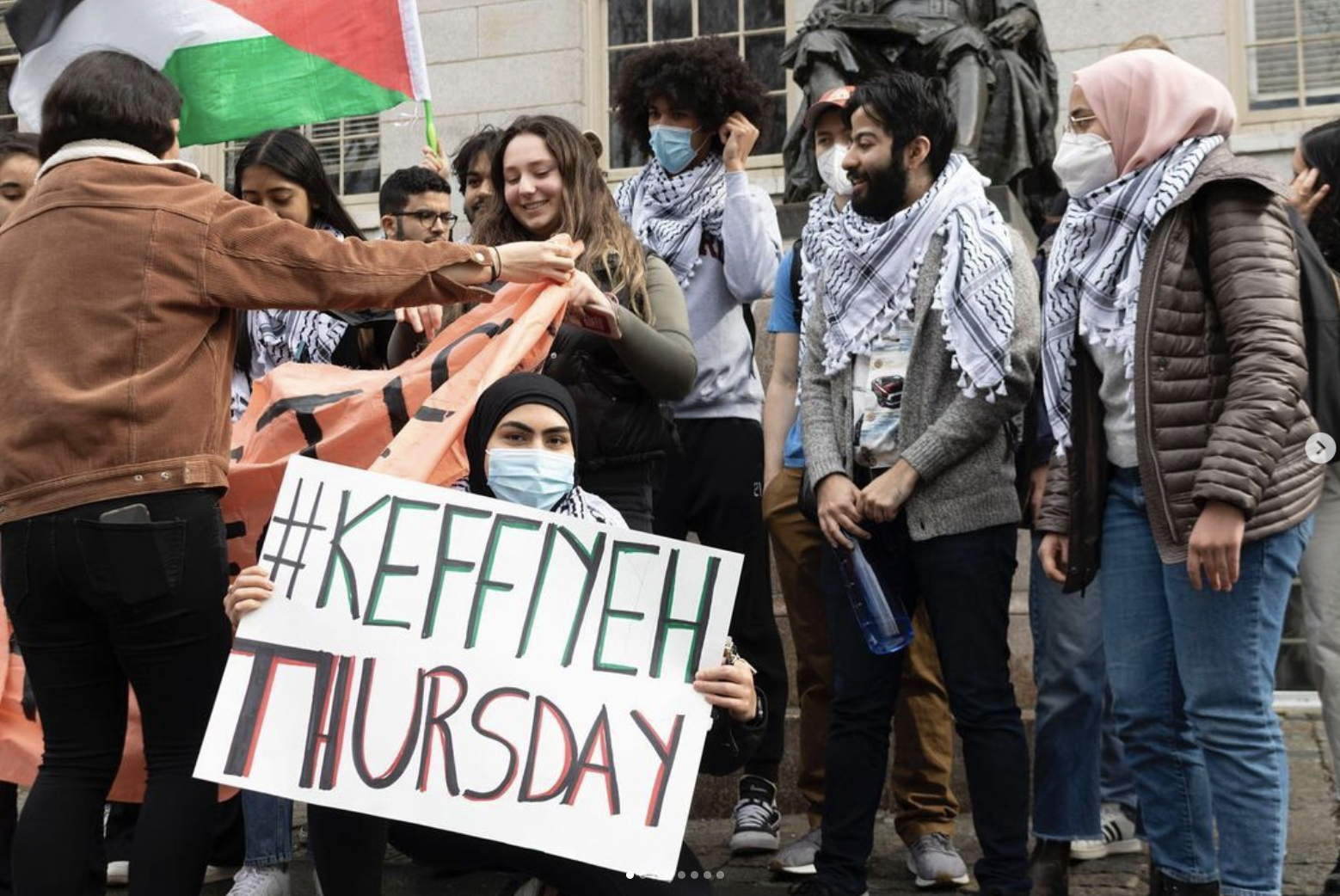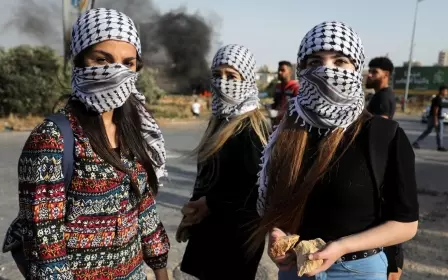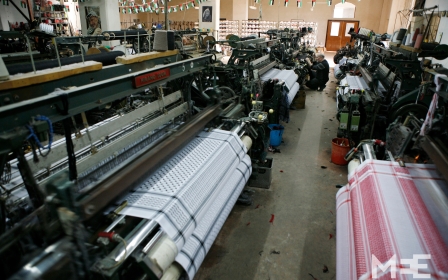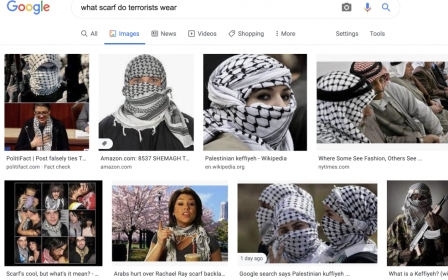Keffiyeh Thursday: Palestinian solidarity campaign at Harvard goes global

Originally worn by rural Palestinian men to protect them from the harsh midday sun, the iconic keffiyeh is now a symbol of Palestinian culture and resistance globally.
The distinct chequered cloth was used in the 1960s and 70s by campaigners as part of the anti-war movement, and from that point on, it has become synonmous with the Palestinian cause.
Now, the Palestine Solidarity Committee (PSC) of one of America’s most prestigious educational institutions, Harvard University, has pioneered a new student campaign in support of Palestine, called #KeffiyehThursday.
Every Thursday, since 3 February, people on campus have worn their keffiyeh throughout the day, to raise awareness of the Palestinian cause.
The idea was mooted when members of the committee asked individuals to wear a keffiyeh while attending an event at the university that would feature an appearance by prominent Palestinian activist Mohammed el-Kurd.
Following the event, it was suggested to the committee that they wear a keffiyeh once every week around campus and so, the #KeffiyehThursday campaign was born.
The campaign was advertised on the university’s PSC Instagram page and this guaranteed that as many people as possible were spotted around campus wearing the scarf.
For those who didn’t already own a keffiyeh, some were made available to purchase, bought by the committee from the Hirbawi factory, the only Palestinian factory in Hebron that still produces them.
Raising awareness
"The keffiyeh movement tries to reach out to people that might be sympathetic to the Palestinian cause, but don’t actively seek us out," Josh D Wilcox, a member of Harvard's Palestine Solidarity Committee told Middle East Eye.
"They see a couple of people wearing the keffiyeh every Thursday morning and they start to ask questions. They reached out to members on the Palestine Committee and started conversations that they might not have initiated otherwise.
"The movement is also a reminder to groups on university campuses that are hostile to the Palestinian cause that we are present and will continue to be vocal about our support," Wilcox said.
Promotion for the inaugural Thursday was so successful that it sparked the interest of another prestigious US Ivy League college, Princeton.
That same day, Princeton also decided to hold their very own #KeffiyehThursday, posting an image of those who participated in the event to social media.
Harvard’s Students for Justice in Palestine society (SJPS) then decided to reach out and contact multiple other Palestine solidarity societies in universities across the country and abroad.
Soon enough, more universities across the US, as well as universities from Canada to the UK, were partaking in the campaign, and took to social media, using the hashtag #KeffiyehThursday to showcase their efforts.
"Our reaction was one of pride and solidarity," Wilcox told us.
"When we saw the pictures every evening from universities across the country, it was heartwarming to see everyone smiling. Many people feel uncomfortable wearing a keffiyeh if they are the only one. Being surrounded by others wearing the keffiyeh allows Palestinians to feel comfortable and proud showing their identity publicly, albeit for only one day a week," Wilcox added.
Solidarity symbol
Nowadays, human rights activists, protesters, and celebrities have all been seen wearing the iconic scarf, which has become a symbol that transcends gender, religion and nationality.
'Wearing the keffiyeh may be a small gesture, but we promise that it will only be the start of larger things'
- Josh D Wilcox, Harvard's PSC
The notable black stitching on the cloth is said to include multiple emblems significant to the Palestinian people, including the fishing net, honeycomb, olive leaves, and the joining of hands, among others.
For Harvard activists, the campaign has put them in contact with a large number of organisations that share solidarity with Palestine.
In a statement given to Middle East Eye, the PSC drew comparisons between apartheid in South Africa and the Palestinian cause.
“Ending the apartheid era in South Africa required tight and robust organisational communication between organisations across the world who could apply pressure together in unison.”
“With the connections that we now have, we hope that #KeffiyehThursday can be a springboard for future coordination,” the statement read.
The university’s Palestine Solidarity Committee has been active on social media, sharing images and raising awareness about their new campaign.
In one post, they write, “Every extra keffiyeh is another question asked and another eye caught.
“By wearing the keffiyeh you’re taking part in a larger political process of raising consciousness for the Palestinian struggle on campus.”
So far, their efforts have not gone unnoticed. The campaign received coverage from one of Palestine’s main news channels, Palestine TV. Social media accounts with large followings have also reshared images of #KeffiyehThursday.
Going global
The campaign has even made waves internationally. MEE spoke to University College London’s Students for Justice in Palestine society (UCLSJP), who have adopted Harvard’s campaign.
“We were so excited when Harvard’s Palestine society contacted us about #KeffiyehThursday. It was amazing to participate in; it really creates a sense of community on campus,” Sumayyah Uddin, the treasurer of UCLSJP, told us.
“Seeing universities around the world participating in it is so wholesome and we hope this will continue for every Thursday to come,” Uddin added.
With their ever-growing campaign, Harvard university's PSC hopes to send a message to the Palestinian people.
"We will continue to do whatever we can to change the discourse in the US. We know that our countries are some of the biggest supporters of the apartheid regime in Palestine, and it’s therefore our duty to raise awareness and push from the outside," Wilcox said
"Wearing the keffiyeh may be a small gesture, but we promise that it will only be the start of larger things."
This article is available in French on Middle East Eye French edition
Middle East Eye delivers independent and unrivalled coverage and analysis of the Middle East, North Africa and beyond. To learn more about republishing this content and the associated fees, please fill out this form. More about MEE can be found here.





